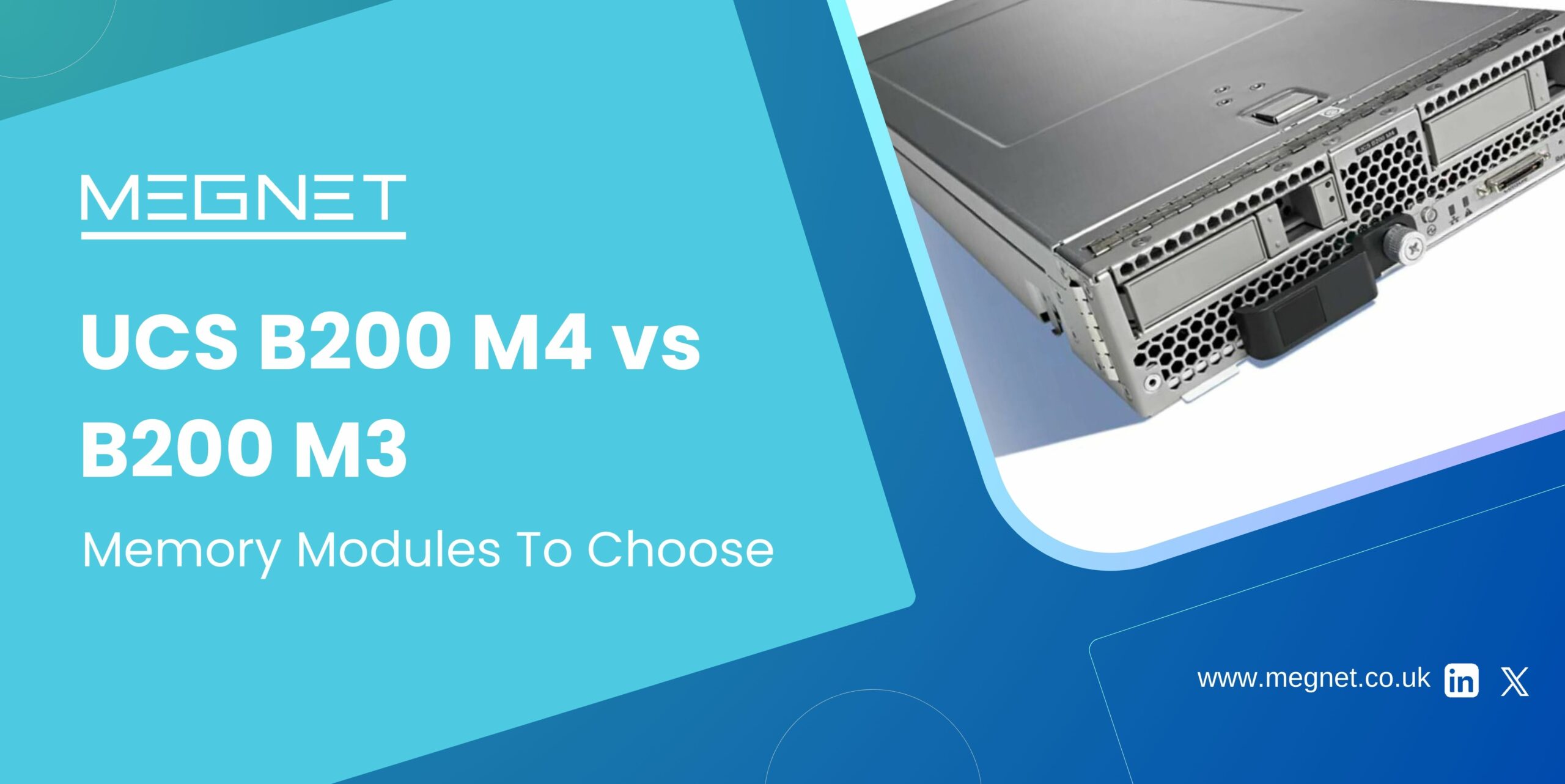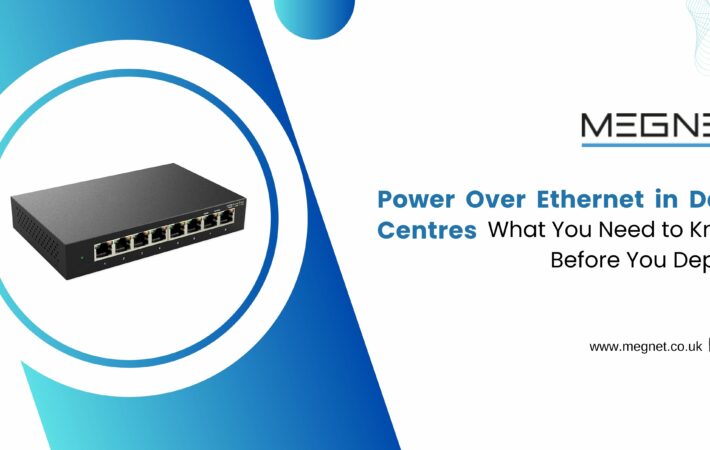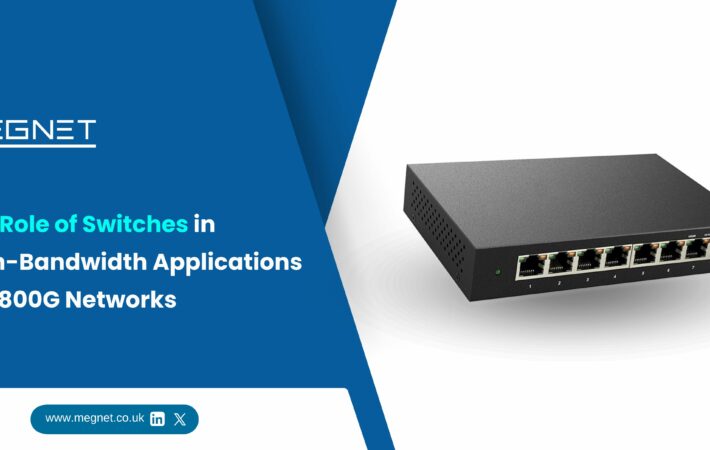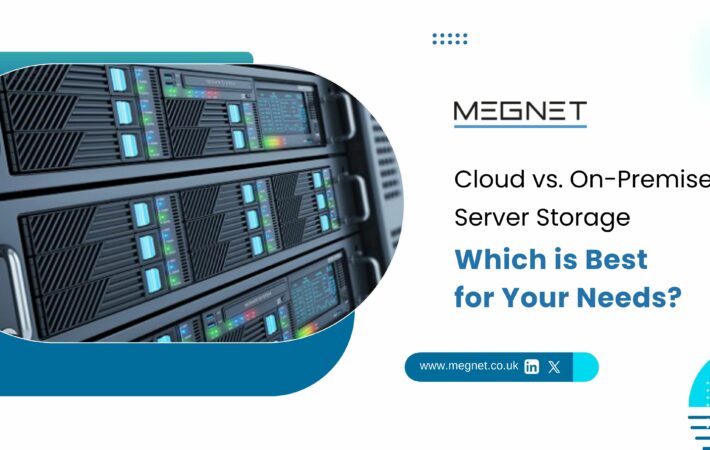
UCS B200 M4 vs B200 M3: Memory Modules To Choose
In the ever-evolving landscape of data centers and server technology, selecting the right hardware components is crucial for optimal performance and scalability. One such component that demands attention is memory modules. When comparing the UCS B200 M4 to its predecessor, the B200 M3, understanding the nuances in memory modules becomes imperative. In this blog, we delve into the intricacies of these memory modules to assist you in making informed decisions for your infrastructure needs.
Memory Capacity:
The UCS B200 M4 introduces enhanced memory capacity over the B200 M3, catering to the growing demands of modern workloads. With support for up to 1.5 TB of DDR4 memory, the B200 M4 surpasses the B200 M3’s capacity, which peaks at 768 GB with DDR3 memory modules. This significant boost in memory capacity enables the B200 M4 to handle more intensive applications and workloads with ease, making it a compelling choice for enterprises seeking scalability and performance.
Memory Speed:
In addition to increased capacity, memory speed plays a pivotal role in determining overall system performance. The UCS B200 M4 leverages DDR4 memory technology, offering faster speeds compared to the DDR3 memory utilized by the B200 M3. DDR4 modules provide higher bandwidth and lower latency, resulting in improved data transfer rates and responsiveness. This enhancement in memory speed equips the B200 M4 to deliver superior performance and efficiency, making it an ideal choice for demanding workloads such as virtualization, database management, and high-performance computing.
ECC Support:
Error Correcting Code (ECC) memory is essential for ensuring data integrity and system reliability in mission-critical environments. Both the UCS B200 M4 and B200 M3 support ECC memory modules, safeguarding against potential data corruption and system crashes caused by memory errors. By detecting and correcting single-bit errors and detecting multi-bit errors, ECC memory provides an added layer of protection, enhancing the stability and resilience of the server infrastructure. Whether deploying virtualized environments, hosting databases, or running enterprise applications, ECC support is indispensable for maintaining uninterrupted operations.
Memory Configuration Flexibility:
The UCS B200 M4 offers enhanced flexibility in memory configuration, allowing for optimized resource allocation based on specific workload requirements. With support for a diverse range of memory configurations, including different capacities and speeds, organizations can tailor the memory configuration of the B200 M4 to align with their performance, scalability, and budgetary needs. This flexibility enables efficient utilization of resources, ensuring that the server infrastructure remains agile and adaptable to evolving business demands. In contrast, while the B200 M3 offers some degree of memory configuration flexibility, it may not match the versatility provided by the B200 M4, particularly concerning memory capacity and speed options.
Future-Proofing and Investment Protection:
Investing in hardware that offers future-proofing capabilities is essential for mitigating the risk of premature obsolescence and ensuring long-term viability. The UCS B200 M4’s support for DDR4 memory positions it as a more future-proof option compared to the B200 M3, which utilizes DDR3 memory technology. As DDR4 continues to become the standard in server memory, opting for the B200 M4 enables organizations to stay ahead of the curve and leverage the latest advancements in memory technology. Moreover, investing in the B200 M4 provides a higher return on investment by prolonging the lifecycle of the infrastructure and minimizing the need for costly upgrades in the near future.
Memory Capacity:
The UCS B200 M4 introduces enhanced memory capacity over the B200 M3, catering to the growing demands of modern workloads. With support for up to 1.5 TB of DDR4 memory, the B200 M4 surpasses the B200 M3’s capacity, which peaks at 768 GB with DDR3 memory modules. This significant boost in memory capacity enables the B200 M4 to handle more intensive applications and workloads with ease, making it a compelling choice for enterprises seeking scalability and performance.
Memory Speed:
In addition to increased capacity, memory speed plays a pivotal role in determining overall system performance. The UCS B200 M4 leverages DDR4 memory technology, offering faster speeds compared to the DDR3 memory utilized by the B200 M3. DDR4 modules provide higher bandwidth and lower latency, resulting in improved data transfer rates and responsiveness. This enhancement in memory speed equips the B200 M4 to deliver superior performance and efficiency, making it an ideal choice for demanding workloads such as virtualization, database management, and high-performance computing.
ECC Support:
Error Correcting Code (ECC) memory is essential for ensuring data integrity and system reliability in mission-critical environments. Both the UCS B200 M4 and B200 M3 support ECC memory modules, safeguarding against potential data corruption and system crashes caused by memory errors. By detecting and correcting single-bit errors and detecting multi-bit errors, ECC memory provides an added layer of protection, enhancing the stability and resilience of the server infrastructure. Whether deploying virtualized environments, hosting databases, or running enterprise applications, ECC support is indispensable for maintaining uninterrupted operations.
Memory Configuration Flexibility:
The UCS B200 M4 offers enhanced flexibility in memory configuration, allowing for optimized resource allocation based on specific workload requirements. With support for a diverse range of memory configurations, including different capacities and speeds, organizations can tailor the memory configuration of the B200 M4 to align with their performance, scalability, and budgetary needs. This flexibility enables efficient utilization of resources, ensuring that the server infrastructure remains agile and adaptable to evolving business demands. In contrast, while the B200 M3 offers some degree of memory configuration flexibility, it may not match the versatility provided by the B200 M4, particularly concerning memory capacity and speed options.
Future-Proofing and Investment Protection:
Investing in hardware that offers future-proofing capabilities is essential for mitigating the risk of premature obsolescence and ensuring long-term viability. The UCS B200 M4’s support for DDR4 memory positions it as a more future-proof option compared to the B200 M3, which utilizes DDR3 memory technology. As DDR4 continues to become the standard in server memory, opting for the B200 M4 enables organizations to stay ahead of the curve and leverage the latest advancements in memory technology. Moreover, investing in the B200 M4 provides a higher return on investment by prolonging the lifecycle of the infrastructure and minimizing the need for costly upgrades in the near future.
Scalability and Growth Potential:
One of the key advantages of the UCS B200 M4 over the B200 M3 is its enhanced scalability and growth potential. The ability to accommodate up to 1.5 TB of DDR4 memory allows organizations to scale their infrastructure to meet evolving business demands without the need for frequent hardware refresh cycles. This scalability is particularly beneficial for rapidly growing enterprises or those operating in dynamic environments where agility and flexibility are paramount.
Furthermore, the UCS B200 M4’s support for DDR4 memory technology future-proofs the infrastructure, ensuring compatibility with upcoming generations of servers and memory modules. This forward compatibility minimizes the risk of technology obsolescence and provides a more sustainable investment in server hardware over the long term.
Performance Optimization:
Effective performance optimization requires a thorough understanding of the underlying hardware components, including memory modules. While both the UCS B200 M4 and B200 M3 offer robust memory performance out of the box, fine-tuning memory configurations can further enhance overall system performance and efficiency.
Advanced memory tuning techniques, such as adjusting memory timings, voltage settings, and memory interleaving, can optimize memory subsystems to better align with specific workload characteristics and application requirements. Additionally, leveraging features such as memory mirroring, sparing, and channel interleaving can improve fault tolerance, reliability, and throughput in mission-critical environments.
By exploring these performance optimization options and tailoring memory configurations to suit the unique demands of their workloads, organizations can unlock the full potential of their UCS B200 M4 or B200 M3 servers, achieving higher levels of performance, efficiency, and responsiveness.
Risk Mitigation and Reliability:
In mission-critical environments, reliability and data integrity are paramount concerns. Both the UCS B200 M4 and B200 M3 servers feature support for Error Correcting Code (ECC) memory, which helps mitigate the risk of data corruption and system crashes caused by memory errors. ECC memory works by detecting and correcting single-bit errors and detecting multi-bit errors, thereby enhancing the stability and reliability of the server infrastructure. By investing in servers equipped with ECC memory, organizations can minimize the risk of costly downtime, data loss, and service disruptions, ensuring uninterrupted operations and business continuity.
Furthermore, by selecting memory modules from reputable manufacturers with a proven track record of quality and reliability, organizations can further mitigate the risk of memory-related issues and instill confidence in the stability of their server infrastructure.
Conclusion:
In the realm of server technology, memory modules play a pivotal role in determining performance, scalability, and reliability. When comparing the UCS B200 M4 to the B200 M3, the choice of memory modules emerges as a crucial factor influencing overall system capabilities. With its superior memory capacity, speed, ECC support, configuration flexibility, and future-proofing capabilities, the UCS B200 M4 stands out as a compelling choice for organizations seeking to optimize their server infrastructure for modern workloads. By understanding the nuances of memory modules and their impact on server performance, businesses can make informed decisions that align with their evolving IT requirements and strategic objectives.
The UCS B200 M4 offers significant advancements in memory capacity, speed, and future-proofing capabilities over the B200 M3, making it a compelling choice for organizations seeking to optimize their server infrastructure for modern workloads. By carefully evaluating memory requirements, considering compatibility and interoperability, optimizing performance, and balancing cost considerations, organizations can select the right memory modules that best suit their needs and drive business success in the digital era.
FAQ's
No, M3 and M4 servers are not compatible with each other's memory types. M3 uses DDR3, while M4 uses DDR4.
Both M3 and M4 support Registered DIMMs (RDIMMs) and Load-Reduced DIMMs (LRDIMMs). RDIMMs are a cost-effective option, while LRDIMMs offer higher density and better performance for demanding workloads.
M3: Supports DDR3-1333 MHz, DDR3-1600 MHz, and DDR3-1866 MHz. M4: Supports DDR4-2133 MHz, DDR4-2400 MHz, and DDR4-2666 MHz. M4 offers faster memory options.
The maximum capacity depends on the specific server model. Refer to your server's documentation for details. Both M3 and M4 typically offer similar maximum capacities.
Upgrading memory can enhance performance, especially for memory-intensive applications. Consider your workload requirements and budget before deciding.
Upgrading to an M4 server allows using faster DDR4 memory, but it requires replacing the entire server. Evaluate if the performance gain outweighs the cost of a new server.








Leave a comment
Your email address will not be published. Required fields are marked *